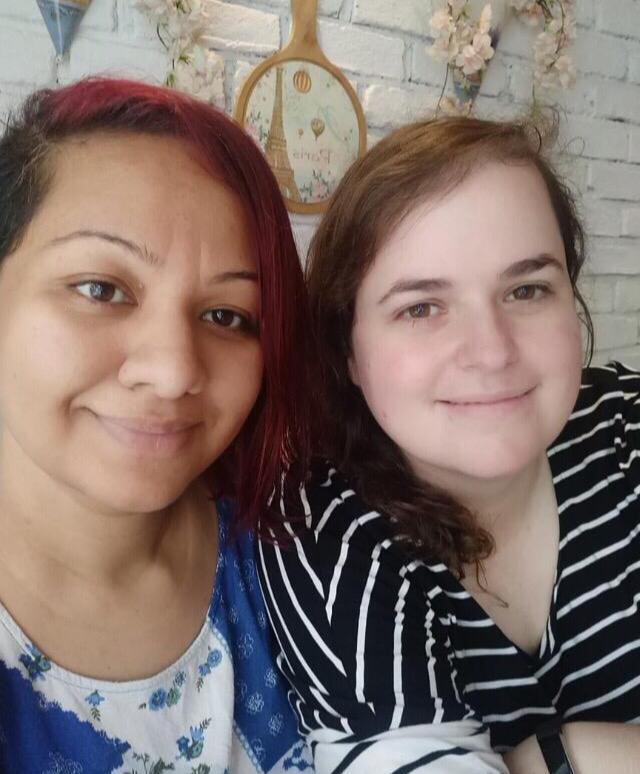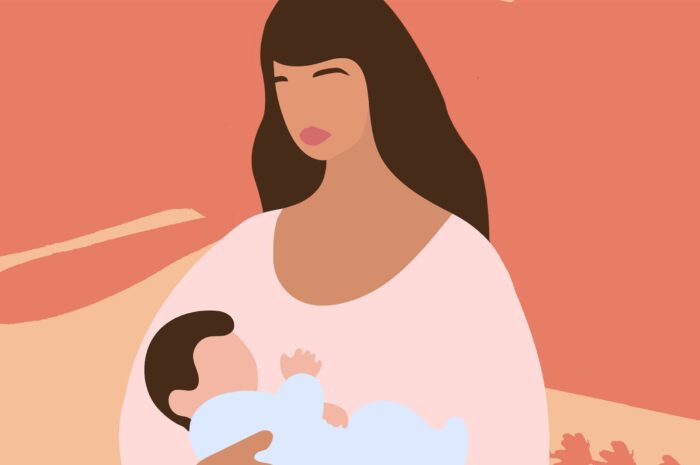By Kiran Chalke and Hayle Davies
As a lesbian couple with a whole list of reproductive health issues, including endometriosis, PCOS and Fibroids, we have faced a lot of barriers to accessing appropriate gynaecological care. This includes having to constantly prove that our health issues are severe enough to warrant treatment and having to always correct doctors when they refer to us as each other’s ‘friends’ throughout medical appointments.
We also find that our GP often acts as a barrier to us accessing the appropriate care at the initial stage, including more recently when we were laughed at in our GP surgery when we requested blood tests to check our fertility levels prior to potentially undergoing self-funded fertility treatment. Her frank statement when she finished laughing was that ‘heterosexual couples can’t even access fertility blood tests on the NHS’.
This experience made us rethink our decision altogether and we postponed our plans to start a family for a year. We then decided to change our GP after moving to another area in London. When we were ready to speak with our new GP, who coincidently was also an LGBTQ+ person, we were quite stressed about what her response would be to our questions. However, when we asked about getting our fertility blood tests done, she gave a very positive response and was also visibly surprised when we told her about our previous experience with another GP.
She gave us some great information about our options and was genuinely kind and caring throughout the appointment. But it should not take having a GP from our own community for us to feel like we were able to safely access advice and support.
Navigating the reproductive health world as a lesbian couple has therefore been frustrating on many levels, not least because our new GP explained that if we were a heterosexual couple Hayle would have qualified for a free round of IVF on the NHS due to her reproductive health issues. But because we are a lesbian couple, we instead had to fund 6 rounds of IUI ourselves at a cost of between £350-£1000 each time prior to even being able to access the reproductive support we would have received by default had we been a heterosexual couple.
This cost unfortunately means that we cannot afford to start our family and seems particularly unfair because heterosexual couples do not need to spend any money and can approach the NHS for support after a period of 2 years of trying for a family. It feels particularly unfair that we are treated so differently to heterosexual couples and leaves same sex couple in a vulnerable position, especially as many of us do not even know that speaking with another GP might have a different outcome.
Accessing appropriate gynaecological care during the pandemic has also been particularly difficult, Hayle uses a Mirena Coil to manage some of her heavy bleeding due to endometriosis and during the first lockdown in March 2020 it needed to be changed as it had been in place for five years.
Due to the pressure on the NHS, it was impossible at that point to have it replaced however she wasn’t expecting to still be waiting for a replacement in August 2021. A wait that was partly made worse by the fact that our GPs explained that they were prioritising replacing the coils of those who used it for contraception and therefore she was very low down on the list. Having finally secured an appointment to change it along came all of the irrelevant questions about whether she was pregnant (a question which is both impossible as she does not have sex with men and upsetting due to her infertility issues).
I was also not allowed to attend the appointment with her due to Covid but on picking her up afterwards and hearing that the GP struggled to get her new coil in and therefore she no longer had a coil was understandably upset. Especially as the GP said that they wouldn’t normally try to replace the coils of people who had not had children in the GP surgery, a fact which she had told them on booking the appointment and was written in her doctor’s notes. But her concerns were brushed aside even though her coil helps her to directly manage her severe endometriosis. So again, she is at the bottom of a new waiting list to gain a coil which has resulted in all of her endometriosis symptoms coming back, including extensive pain which is severely impacting her day-to-day activities and her work.
My own experience in the UK has also been similar, including difficulties gaining appropriate appointments to better understand my gynaecological issues as I wasn’t planning on starting a family. Recently when undergoing a colposcopy to check for abnormal cells after my cervical smear came back abnormal, the male doctor continually referred to Hayle as my ‘friend’ throughout the appointment.
This was despite us being listed as partners in our NHS records and me introducing her at the start of the appointment as my partner. This made it hard for her to provide proper support to me throughout the procedure as I was feeling particularly vulnerable while my cervix was being examined. I constantly wondered why the medical staff assume that two females are friends and don’t even bother to check our relationship by asking us or listening when someone is introduced. The male gynaecologist also visibly flinched when he asked Hayle if she was my friend and she said no, she was my wife. Not ideal to have a doctor flinching away from you when you are naked from the waist down in a compromising position.
More needs to be done to train doctors to ensure that they know how to support LGBTQ+ patients through their procedures. We don’t really blame the medical staff themselves for this ignorance, as they are busy people who often do not have time to read a patients notes.
But more needs to be done to combat their internal bias and ensure that they do not just assume that everybody is heterosexual, making some small changes would definitely support LGBTQ+ people to feel more comfortable accessing the healthcare system.




